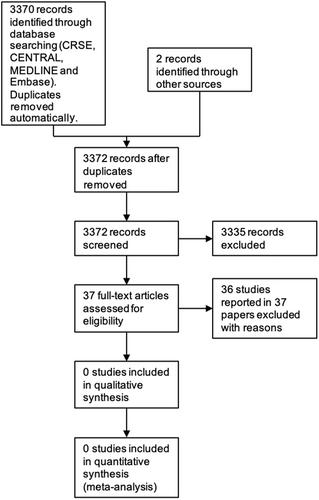Surgical excision methods for skin cancer involving the nail unit: A systematic review
Abstract
Introduction
Skin cancer affecting the nail unit is rare but is associated with morbidity, and melanoma has a high mortality rate. The principal treatment is surgical excision and methods can be classified into digit-sparing surgery or amputation. Digit-sparing surgery (wide excision or Mohs surgery) may be safe and effective for malignancies involving the nail unit in comparison to amputation if there is not bony invasion. The objective was to assess the efficacy and safety of different methods of surgical excision for skin cancer involving the nail unit.
Methods
Prospective comparative studies (randomized controlled studies, non-randomized controlled studies and prospective observational studies) of surgical excision for skin cancer of the nail unit in all participants were eligible for inclusion. We searched electronic databases, trials registers and conference abstracts. We checked the reference lists of included studies and related systematic reviews for further references to relevant studies, and we contacted experts to enquire if they were aware of any additional relevant trials. We used standard methodological procedures expected by Cochrane. The primary outcomes were overall survival, disease free survival and adverse events/outcomes at 30 days. The secondary outcomes were quality of life outcomes. We planned to use GRADE to assess the quality of the evidence for each outcome.
Results
We did not identify any studies that met the inclusion criteria for this review. We have been unable to assess our outcomes of overall survival, disease free survival, adverse events/effects and quality of life.
Conclusions
As we have not identified any studies for inclusion, we are unable to assess the efficacy and safety of different methods of surgical excision for skin cancer involving the nail unit. We suggest that comprehensive cancer registry analysis is required in this field to obtain meaningful data.


 求助内容:
求助内容: 应助结果提醒方式:
应助结果提醒方式:


